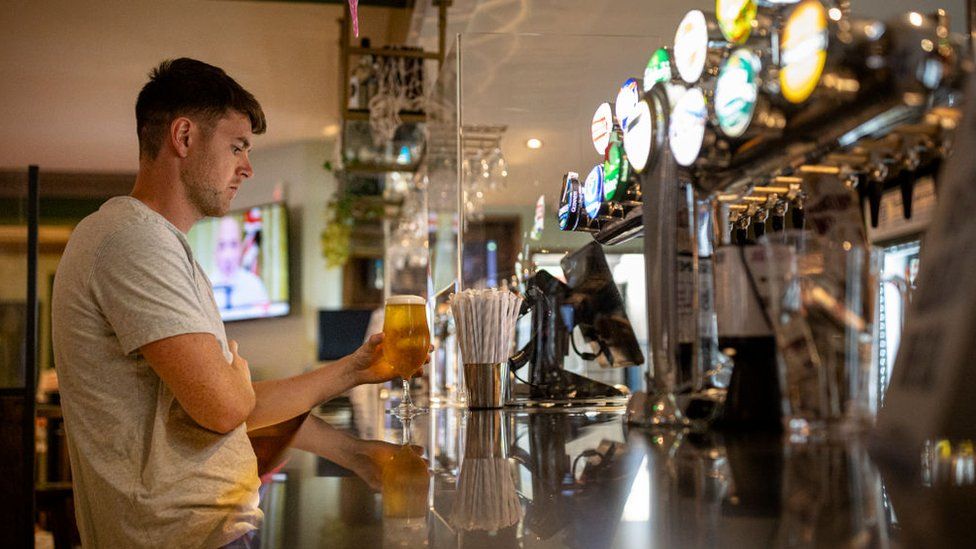Wetherspoon profits jump as Covid recovery continues
- Published
- comments

Pub chain Wetherspoon has reported an eightfold jump in profits, saying its recovery from the Covid pandemic is continuing.
Pre-tax profits leapt from £4.6m to £36m in the first six months of the financial year, as more people visited the group's pubs.
Wetherspoon's boss said overall sales had continued to increase despite a reduction in the number of pubs.
Bar sales saw the biggest increase, up 12% over the year.
The biggest sellers for the chain, which has 814 pubs, were coffee and Pepsi.
Foods sales and slot machine sales also rose.
Sales were continuing to improve into the new financial year, but at a slower rate. Shares in the company dropped 6% as a result.
Wetherspoon founder Tim Martin told BBC Radio 4's Today programme the latest financial results were "good" albeit not "sensational".
He described the recovery from the pandemic as a "slow three-year slog".
As a result, Wetherspoon's profit margins for the six months stood at 6.8%, still below the company's pre-pandemic margins of 7.1%.
Derren Nathan, head of equity research at Hargreaves Lansdown, said the results told a story of "an impressive recovery".
But he said the profits growth was in comparison with a low base. "Margins are still pretty thin and there was little in the statement to help see where an improvement might come from," he said.
Wetherspoon has cut its number of pubs from 955 a few years ago, since when sales per pub have increased by about 50%. It said there was the potential in the UK for about 1,000 outlets.
Mr Martin also highlighted the fact that the tax burden on pubs and restaurants is much higher in the UK than it is on supermarkets.
He called for tax equality to revitalise High Streets and town centres, pointing towards other European countries where the VAT rate on restaurant and food sales is far lower, typically at 5-10%.
Mr Martin called for a similar approach in the UK, advocating for a VAT rate "less draconian" than the current 20%.
Related Topics
- Published22 March